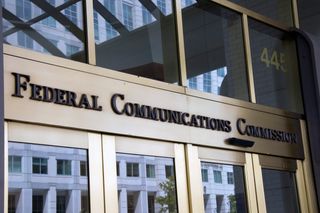FCC Asked to Reverse Text Messaging Title I Call

Public Knowledge, the Benton Foundation and more than a dozen others have asked the FCC to reconsider its decision that text messaging is a Title 1 service out of the reach of common carrier rules.
That came in a petition to reconsider the Dec. 12, 2018, decision.
The FCC declared, with lone Democrat Jessica Rosenworcel dissenting, that wireless text messages—SMS and MMS—are information services (Title I), not telecom services (title II), making it easier for them to compete with SnapChat and other lightly regulated instant messaging services. The item also concludes SMS and MMS are not functional equivalents of commercial mobile services.
“The FCC's decision on the classification of SMS is bad policy, and legally untenable," said Public Knowledge senior counsel John Bergmayer. "Consumers, nonprofits, and businesses need access to open, nondiscriminatory communications services like SMS, just as they need access to broadband and telephony. But that's not the only reason we're asking the Commission to reconsider its decision," he added. "In addition, the final Order introduces new legal errors not present in the circulated draft, and fails to consider relevant policy issues concerning consumer privacy and access to SMS for institutions such as schools. In addition, the SMS Order relies on much of the same reasoning that is currently being challenged in court in the net neutrality litigation, and this creates needless legal uncertainty."
Related: Public Knowledge Slams FCC Over VoIP Privacy
That FCC's "declaratory ruling" was also billed as a way for service providers to continue to protect their customers from span and scam robotexts, at least by the Republican majority over the objections of Democrat Jessica Rosenworcel (and Hill Democrats down the street). The vote was 3-1 (it came before last month's vote to add a second Democratic commissioner and restore the FCC to its full complement of five commissioners).
The text messaging debate was something of a mini-reprise of the Title II/Title I net neutrality rule debate, with a group of nine high-profile Democratic senators having told the FCC that classifying texts as Title I would give carriers the power to censor or favor speech. They said it would allow them to block text messages to favor either their own texting services or to stifle free speech, analogous to the harms they envisioned for the Restoring Internet Freedom order's reclassification of internet access as Title I and the elimination of prohibitions on blocking, throttling and paid prioritization.
Broadcasting & Cable Newsletter
The smarter way to stay on top of broadcasting and cable industry. Sign up below
The FCC declaratory ruling on text messaging also denied two petitions to declare text messages a telecom service, something Public Knowledge has been advocating for years. In fact, almost a dozen years ago Public Knowledge sought a declaratory ruling that text messaging was a Title II service.
Texts had not previously been classified one way or the other, as is currently the case with interconnected VoIP, and the petitions gave the FCC a chance to weigh in.
Those joining Public Knowledge and Benton in the petition included the Center for Democracy & Technology, Common Cause, the Consumer Federation of America, and the Open Technology Institute.
Contributing editor John Eggerton has been an editor and/or writer on media regulation, legislation and policy for over four decades, including covering the FCC, FTC, Congress, the major media trade associations, and the federal courts. In addition to Multichannel News and Broadcasting + Cable, his work has appeared in Radio World, TV Technology, TV Fax, This Week in Consumer Electronics, Variety and the Encyclopedia Britannica.

